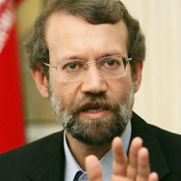
Military Materials Security Study Group

Tackling "the 83 percent"
Challenge
Approximately 2,000 metric tons of weapons-usable nuclear materials is not subject to any international security standard.
Action
NTI convened a study group of prominent leaders in the military, political and technical sectors from key nuclear-armed states to address this issue.
Results
The Military Materials Study Group released a series of recommendations to tighten control of military and non-civilian nuclear materials to build international confidence in their security.
Details
Project Staff
Despite the recent high-level attention paid to global nuclear materials security through three head-of-state Nuclear Security Summits, there remains a critical gap: 83 percent of the approximately 2,000 metric ton global inventory of weapons-usable nuclear materials–plutonium and highly enriched uranium–is categorized as “military” and is not subject to any international security standards or oversight mechanisms.
To address this gap, NTI has convened a study group of prominent leaders in the military, political and technical sectors from key nuclear-armed states, led by NTI Co-Chairman and former U.S. Senator Sam Nunn, Lugar Center President and former U.S. Senator Richard Lugar and NTI Vice Chairman and former U.K. Defense Secretary Des Browne. The study group’s work builds on more than two decades of work to secure nuclear weapons and materials under the Nunn-Lugar Cooperative Threat Reduction Program.
NTI first highlighted this issue as part of its Global Dialogue on Nuclear Security Priorities, an ongoing forum providing thought leadership to strengthen global nuclear security. World leaders at the 2014 Nuclear Security Summit called for states to maintain effective security of all nuclear materials, including those used in nuclear weapons but offered no concrete recommendations to improve the security of these and other military materials. This material falls into diverse categories, ranging from active warheads to naval fuel to material declared excess.
Many assume military materials are held to a higher standard and are better secured than civilian materials, but a series of high-profile incidents suggest otherwise. In 2012, an 82 year-old nun and her two fellow peace activists broke into the Y-12 National Security Complex in Oak Ridge, Tennessee, where the United States stores most of its military HEU. In 2007, U.S. Air Force personnel mistakenly loaded six cruise missiles with nuclear warheads onto a bomber and flew it across the country, leaving the nuclear weapons unguarded on a runway for 36 hours. More recently, stewards of nuclear weapons in the United States and United Kingdom have made headlines for falling asleep on the job and other negligent practices.
The study group’s specific recommendations were published in November 2015 to tighten control of military and non-civilian materials and to build international confidence in the effectiveness of their security, while still protecting sensitive information.
2015

Past Event
Bridging the Military Nuclear Materials Gap
House of Sweden, 2900 K Street, NW

The Importance of Securing Military Materials
A common misconception is that weapons-usable nuclear materials classified as "military" are most secure than civilian materials.
2014

Sam Nunn, Richard Lugar and Des Browne Launch Initiative to Improve Security of Military Nuclear Materials
A new international study group tackles the 85 percent of materials outside of international security mechanisms.
